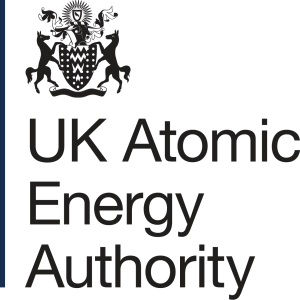Why did you choose a job in this sector/profession?
I first became aware of the profession during my undergraduate industrial placement. However, at the end of my undergraduate degree I was still interested in research so I decided to pursue a PhD, which then led on to a couple of postdocs.
During my last postdoc I began to think more seriously about a career as a patent attorney. True to the patent attorney trope (wanting to work in science but not active research), I had reached a point where a lab-based career did not appeal to me. I began to seriously look into a patent law career, and reached out to everyone I knew who was linked to patent law (friends, friends of friends, old colleagues, etc.) to learn as much about the profession as I could. I was also fortunate to be able to organise some work experience at the firm that handled my postdoc institute’s intellectual property.
How did you get your job at Patent Boutique LLP?
The first stage of the application process involved submitting a CV and a cover letter. This application format is generally the norm when applying for trainee patent attorney positions.
I was then invited to a first-round interview with the three partners. Prior to this interview, I was asked to prepare a 5 minute presentation explaining how a simple device operated. The interview included giving the presentation and then discussing the device in more detail afterwards, as well as further technical questions and more typical ‘HR type’ questions.
Following this, I was invited back for the second-round of the process, which included an interview with two senior associates and a further interview with the three partners. These interviews included discussing how a corkscrew worked and further technical and HR questions. By the time you reach interview, I think most firms will be confident that you can do the job based on your CV, so most of the interview seemed to be focussed on making sure I would be a good fit for the firm.
After this I was offered a position and joined the firm in November 2017.
What are your main duties/roles?
Most of my work involves the prosecution of patent applications, i.e. the process leading up to the grant of a patent. A patent office examiner will assess the patentability of an invention and raise a number of objections in a search or examination report, which we have to overcome in order to get the application granted. We prepare a response to these reports, which involves reviewing the objections and any documents cited by the examiner, liaising with the client to ensure the broadest possible scope of protection, and finally drafting the response with arguments addressing the examiner’s objections.
As I work in a small firm, I have the opportunity to work for qualified attorneys with different specialisms rather than exclusively for one person. This is really beneficial from a training perspective, as I am exposed to a number of different working styles and a vast range of different technologies. For example, one day I can be working on a detergent product, the next day on an antibody, and the following day on a medical device.
After passing the Certificate in Intellectual Property Law at Queen Mary in 2019, I was given responsibility for dealing with new client enquiries. This generally involves calling the inventor to discuss their idea and then following up with a face-to-face meeting. Although this was daunting at first, it has been great to have the opportunity to use my technical, legal and commercial knowledge to provide this initial advice to inventors.
Is it a 9 to 5 job?
In general, yes. On the whole my working day finishes at around 1730 (which is particularly nice after spending such a long time in academia). However, there are occasions when longer hours are required, though at the moment they are few and far between.
This profession is driven by deadlines set by patent offices, which are usually in the order of months, so there are not usually any surprise last minute deadlines. However occasional late instructions do happen, so you need to be prepared to rearrange your work plan and perhaps work a little later than usual to meet the deadlines.
Qualifying as a patent attorney requires you to pass several European and UK qualifying exams. These exams are very demanding so, although my working day finishes around 1730, I am often studying in the evenings and at weekends. Be prepared to put in a lot of revision hours in the first few years of your career; in the long run that time spent will be worth it to work in an interesting and challenging field with a good work/life balance.
Do you have any advice for anyone wanting to get into the industry?
Reading this guide is an excellent place to start, you’d be hard-pressed to find a trainee who hasn’t at least skim read this guide. In addition, try to take advantage of the open days and internships that some firms offer, or if this isn’t possible, talk to your university’s tech transfer/enterprise unit. Basically, I would encourage you to learn as much about the profession as you can to put yourself in the best position for the application and interview process.
When it comes to applying, my advice would be to make sure to tailor your CV and cover letter to the individual firm or firms you are applying to by taking the time to do your research on each firm. If you prepare a generic CV and cover letter and use this to apply for positions, it will be very apparent to the person reading your application and will not put your application at the top of the pile. In a similar vein, make sure to proofread your application several times and then have someone else proofread it to pick up on any spelling/grammar mistakes that you might not be able to see. The pedantic patent attorney eye will almost certainly spot them! In short, applying for a training position is very competitive, so you really don’t want to do anything in your application that gives the assessor an excuse to throw it out.






